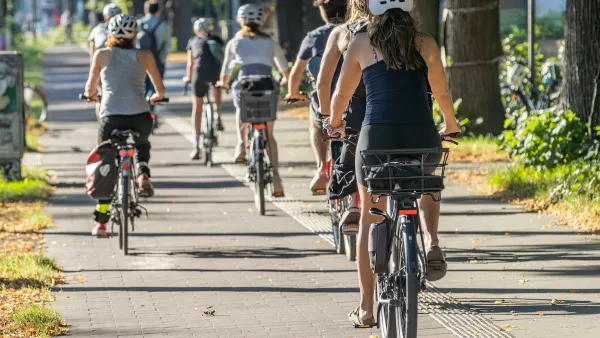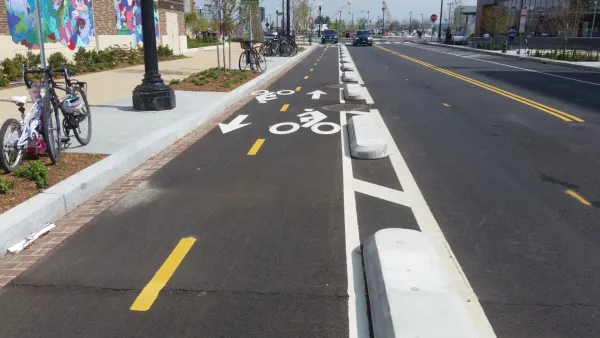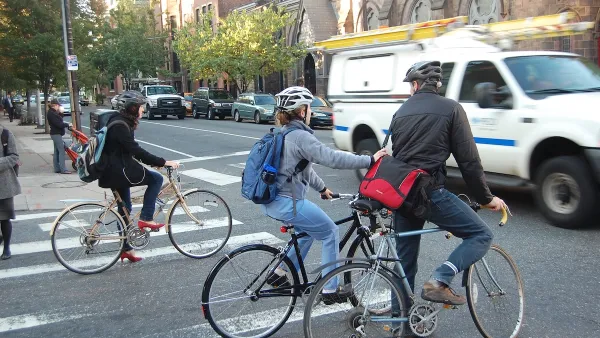Dogged by highly publicized lawsuits and complaints since their introduction six years ago, a new poll conducted by The New York Times shows widespread support for the city's new bike lanes.
It now seems clear that the voices raised in opposition to the construction of bicycle lanes throughout New York City belonged to a vocal minority of the city's residents. According to Michael M. Grynbaum and Marjorie Connelly, "When asked simply whether New York's bike lanes were a good idea or a bad idea, 66 percent of New Yorkers said they thought bike lanes were a good idea, according to the latest poll by The New York Times. A majority in all boroughs said they thought the lanes were a good idea, with support highest in Manhattan."
"Twenty-seven percent of residents called the lanes a bad idea, and 7 percent had no opinion or did not answer."
"New Yorkers who said they thought bike lanes were a good idea cited environmental, health and safety benefits, as well as the addition of more space for bicyclists to ride. Some respondents said they were simply happy that the lanes had encouraged bicyclists to stop riding on the sidewalk," write Grynbaum and Connelly.
"Among the quarter of New Yorkers who said they thought the lanes were a bad idea, the most commonly cited complaint was that the lanes hinder vehicular traffic. Some residents also described the lanes as creating dangerous street conditions."
FULL STORY: Most New Yorkers Say Bike Lanes Are a Good Idea

Planetizen Federal Action Tracker
A weekly monitor of how Trump’s orders and actions are impacting planners and planning in America.

Restaurant Patios Were a Pandemic Win — Why Were They so Hard to Keep?
Social distancing requirements and changes in travel patterns prompted cities to pilot new uses for street and sidewalk space. Then it got complicated.

Map: Where Senate Republicans Want to Sell Your Public Lands
For public land advocates, the Senate Republicans’ proposal to sell millions of acres of public land in the West is “the biggest fight of their careers.”

Maui's Vacation Rental Debate Turns Ugly
Verbal attacks, misinformation campaigns and fistfights plague a high-stakes debate to convert thousands of vacation rentals into long-term housing.

San Francisco Suspends Traffic Calming Amidst Record Deaths
Citing “a challenging fiscal landscape,” the city will cease the program on the heels of 42 traffic deaths, including 24 pedestrians.

California Homeless Arrests, Citations Spike After Ruling
An investigation reveals that anti-homeless actions increased up to 500% after Grants Pass v. Johnson — even in cities claiming no policy change.
Urban Design for Planners 1: Software Tools
This six-course series explores essential urban design concepts using open source software and equips planners with the tools they need to participate fully in the urban design process.
Planning for Universal Design
Learn the tools for implementing Universal Design in planning regulations.
Heyer Gruel & Associates PA
JM Goldson LLC
Custer County Colorado
City of Camden Redevelopment Agency
City of Astoria
Transportation Research & Education Center (TREC) at Portland State University
Camden Redevelopment Agency
City of Claremont
Municipality of Princeton (NJ)





























